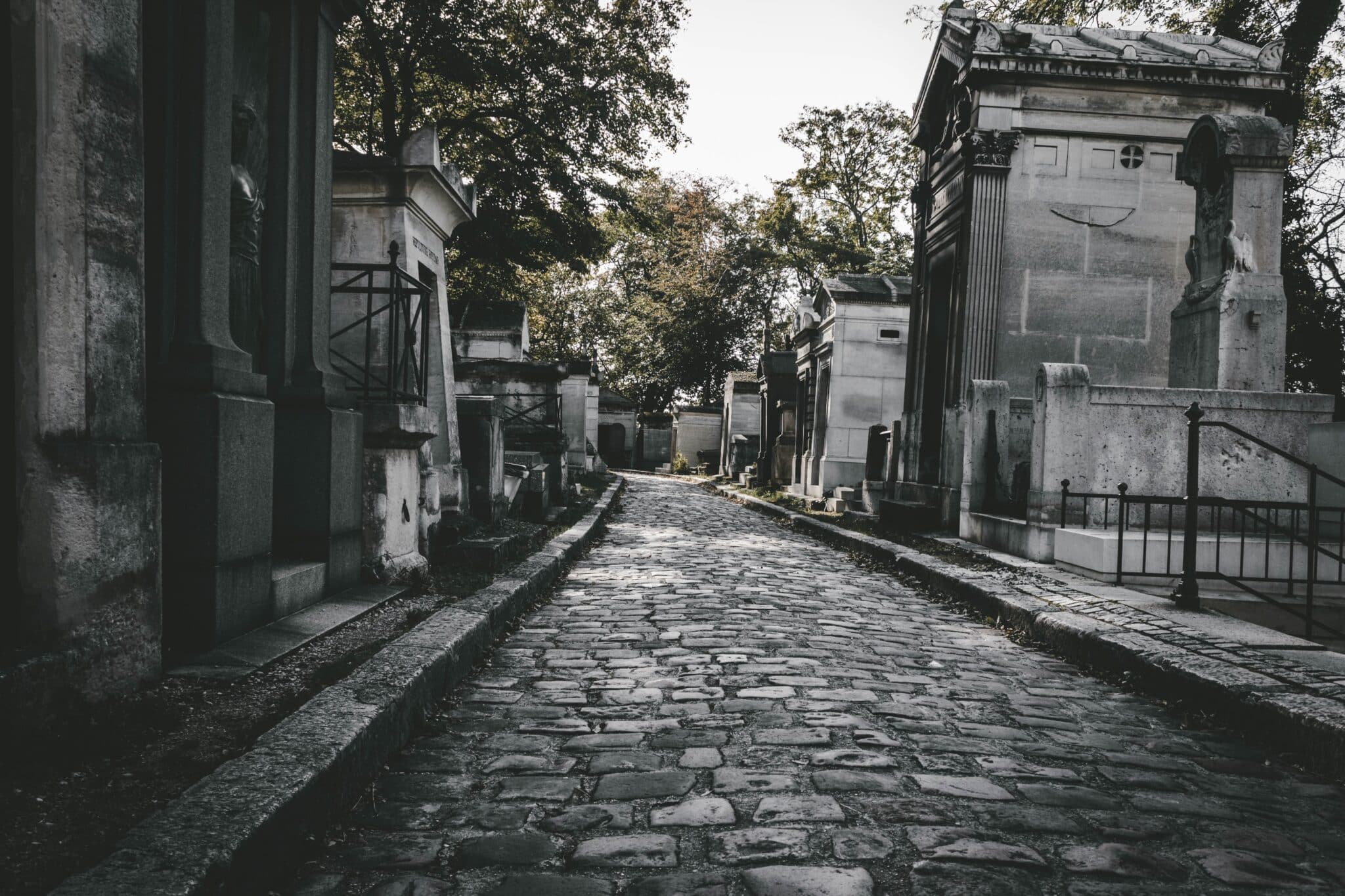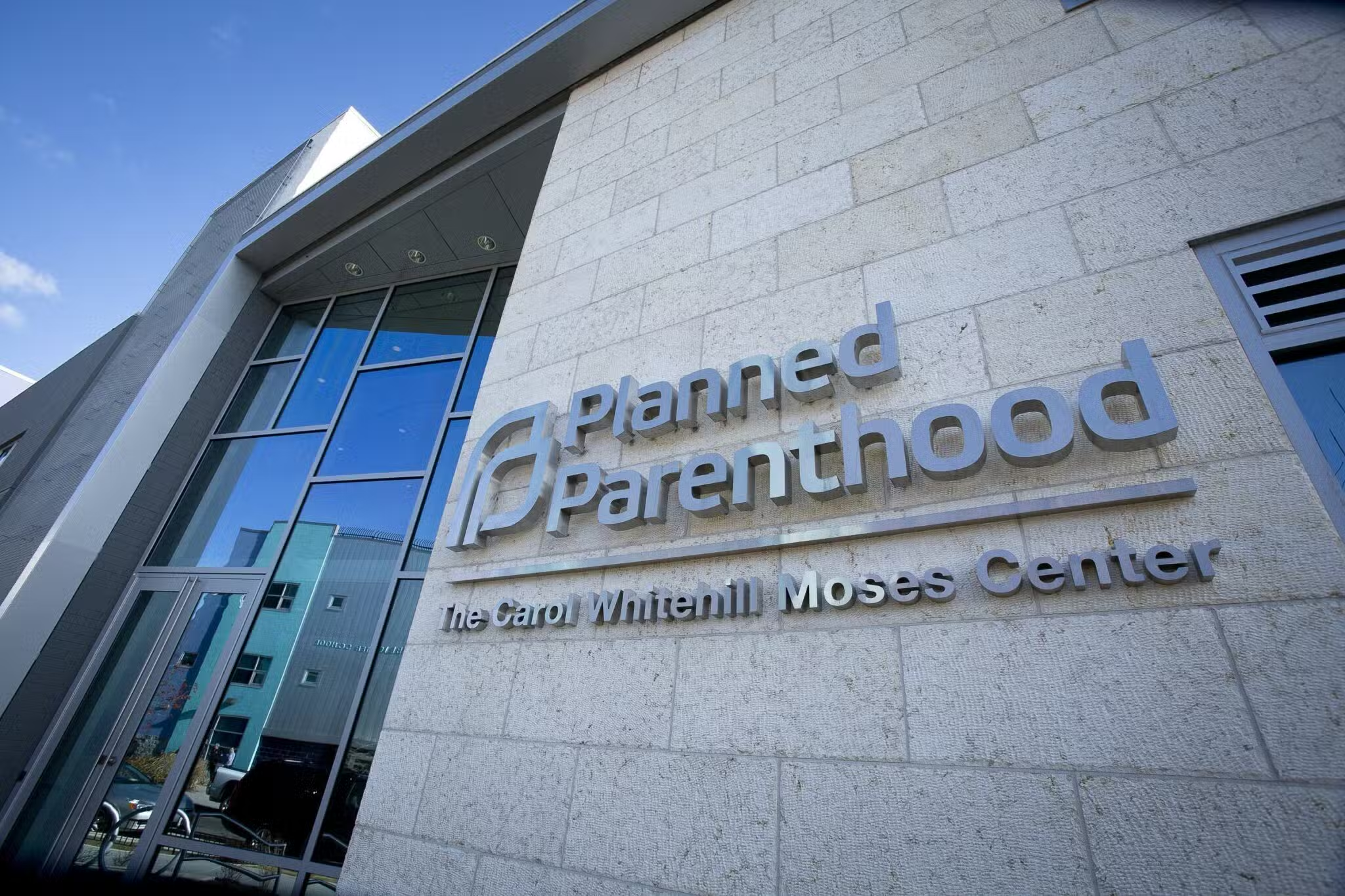A Christian friend says that the Bible contains no references to purgatory. What is the basis for the Church’s teaching about this? Why do Catholics pray for the dead?
In 2 Maccabees 12:38-46, Judas Maccabee orders that sacrifices be offered in the Temple in Jerusalem for slain Jewish soldiers who had worn pagan amulets (good-luck charms).
Some people have seen this story as biblical justification for the teaching on purgatory. That certainly overstates the author’s intention. If, however, those Jewish soldiers did something wrong by wearing pagan amulets, why offer sacrifices on their behalf?
The two Books of Maccabees are probably not in your friend’s Bible because they were originally written in Greek. During Jesus’ lifetime, some Jewish people regarded these books as inspired by God.
About 60 years after Jesus’ death, however, rabbis at Jamnia in Palestine drew up the list (canon) of the Scriptures used by Jewish people to this day. That shorter list includes only works composed in Hebrew, excluding the two Books of Maccabees, five other books and parts of the Books of Daniel and Esther.
For centuries, Eastern and Western Christians accepted as inspired the longer list. When Martin Luther translated the Bible, he used the shorter list. Sometimes, these seven books are printed in Protestant Bibles as “Deutero-canonical” or “Apocrypha.” The New Testament and early Christian writings offer some evidence for purgatory. In 2 Timothy 1:18, St. Paul prays for Onesiphorus, who has died. The earliest mention of prayers for the dead in public Christian worship is by the writer Tertullian in 211 A.D.
The question of purgatory and praying for the dead was a major issue between Catholics and Protestants in the 16th century. The Council of Trent’s 1563 decree about purgatory reaffirmed its existence and the usefulness of prayers for the deceased, yet it cautioned against “a certain kind of curiosity or superstition…” about it.
The Roman Catholic teaching on purgatory reflects its understanding of the communion of saints. We are connected to the saints in heaven, the saints-in-waiting in purgatory and other believers here on earth. Prayers for the deceased are not a means of buying their way out of purgatory.
The Catholic Church’s teaching about purgatory (Catechism of the Catholic Church, #1030-32) says that all sin, unfortunately, has a life of its own and may have bad effects even after the sinner repents. Sincere repentance includes a desire to repair the damage done by one’s sins. That may or may not be complete before the person dies.
When the world ends at the Final Judgment, there will be only two possibilities: heaven and hell. We who celebrate Jesus’ Resurrection over sin and death look forward to sharing in that victory, and we pray that our beloved dead may do the same.
Ask a Franciscan appears monthly in St. Anthony Messenger. Click here to learn more!









21 thoughts on “Purgatory and Praying for the Dead”
I believe that one’s fate is sealed at the moment of death. If purgatory was real & a person who had not repented had a 2nd chance, why would God have had His Son go through the crucifixion for our sins? He gave the supreme sacrifice, His beloved Son. It is up to each of us to make our decision. I wouldn’t want my salvation to be dependent on someone else who may or may not pray for me.
This is a really common misunderstanding. Purgatory is not a “2nd chance”. Purgatory is seen as a purification that is gone through before heaven because nothing unclean can exist in heaven. There is no purgatory for those who go to hell and those in purgatory are guaranteed heaven. We pray that those in purgatory may speedily and painlessly pass through on their way to heaven.
How sure are you that the person you are praying for is destined to heaven
It’s God that knows ones destiny after death and this needs no other purification
The purification is done by you before death
You are absolutely correct….Jesus died on the cross, and his last words were “it is finished”. Not finished somewhere else such as man created purgatory. So called support for purgatory is their belief that prayer was for those that have died.
May the Lord grant mercy to “the household” of Onesiphorus in Second Timothy 1:16,
He was not stating prayer for Onesiphorus, rather only for his household after his death.
Bingo! At the exact moment of your death, you can no longer do anything for your own soul. You are to stand before God, with Judgement. Those left behind can pray for you, offer up masses, etc. to aid your soul, should you go to purgatory. If sadly, you end up in hell, nothing can alter that fate. Pray, pray and pray more for loved ones, for the world!
I agree with Debra, One gets no second chances after their eyes closes in death. One either goes to Heaven or Hell.
You must know your a sinner who cannot enter into Heavens glory and accept the finished work that Christ did on the cross in your behalf. Repenting of their sins, knowing they cannot gain Heaven by their works- believing Christ came down to earth, died, burried and rose again for the sins you have committed. Knowing and BELIEVING this, you ask Christ to save you. Accepting the death of Christ in your place and asking Christ to be your personal saviour
Knowing HE took your sins to the cross once and for all. Not once and then purgatory.
What sins that you commit allows you to go to this place called purgatory ? Can you show me from the WORD of GOD a list of those sins ? I’m pretty sure you can’t shoe me chapter and verse.
The bottom line is Christ Died ONCE for all our sins. If you believe in purgatory that’s fine and it’s your decision however one takes a pretty large gamble with where you spend eternity by doing so. After death there are no second chances.
If you are saying that one who trusts the church and its views on a doctrine that has been around for thousands of years is going to hell, you need to look in the mirror, my friend. Martin Luther, with his reformation, did more to damage church teaching than anyone in history. It’s a shame so many follow him down this dark road.
Why are you arguing against St. Paul? He’s the one who wrote that many will need to be purged before entering heaven, “as through fire”.
Purgatory isn’t and never was about escaping Hell, it’s about “nothing unclean” passing through the “pearly gates”. Every believer will have something to be purged since as John tells us no one is without sin,
The only people who wouldn’t need purging would be the ones without sin — and they don’t exist.
Jesus the Christ came to the Earth to save all mankind from the original sins committed by the first human that caused by disobedience to GOD words for not eating the fruit from the tree.
When we got baptist with water and the sign of The Cross, in the ‘name’ of the Father, the Son and the Holy Spirit. Since that moment we are ‘officially’ accepted as a member of the Church on Earth, and all Angels in Heaven are rejoicing… All the suffering that Jesus did until He died on the Cross will also purify us from the original sin and our own sins…
We all do believe fhat once Jesus forgave our sins, all the sins we committed were forgiven. We are clean as a new born again.
From the Bible we can see many times Jesus said “sin no more” to the person He cured from the sickness. Even Jesus had forgiven their sins, it did not mean the persons would be sin-proof, or all the sins that they have not done it already be forgiven.. If the person really love Jesus and really want to be His true follower, he/she must control their behavior and avoid sin, choose the spirit instead of flesh.
It is sound weird and un-smart if people think by calling Jesus name that any sin they commit after does not matter, and when they die straight to Heaven.
If people asked about the words in the Bible mentioning about Pulgatory, I am wondering what book and chapter in the Bible saying once we accept Jesus as our savior, all sins after do not matter and we can go straight to Heaven smoothly.
The question is, can we prevent our selves from committing any more sins after baptism? Does it sound weird n rather un-smart if we think all our sins after we got baptist will already be forgiven just like that? When he/she died then directly to Heaven?
Jesus did say to the bad guy on the cross that he would be with Him because of his faith to Jesus, by asking Jesus to remember him and for sure Jesus saw his true sorry for what he did until he got crossed.. Besides he also realize who is the man beside him, Jesus is the Christ. This story shows us that bad guy is forgiven by Jesus for the sins/mistakes he made in the past.
Read the Bible after Jesus cure the sickness, He said to the person “sin no more..”. Jesus told the person not to commit sin anymore..
Just said after his/her sin was forgiven by Jesus, the person live for several years but committed the same sin then died. Do you think this person can straight go to Heaven because last time Jesus was forgiven the sin? The person need Jesus to re-forgive the sin in order to be clean from sin..
Forgive my English because its not my mother tongue 🙏🏽
Jesus the Christ came to the Earth to save all mankind from the original sins committed by the first human that caused by disobedience to GOD words for not eating the fruit from the tree.
When we got baptist with water and the sign of The Cross, in the ‘name’ of the Father, the Son and the Holy Spirit. Since that moment we are ‘officially’ accepted as a member of the Church on Earth, and all Angels in Heaven are rejoicing… All the suffering that Jesus did until He died on the Cross will also purify us from the original sin and our own sins…
We all do believe fhat once Jesus forgave our sins, all the sins we committed were forgiven. We are clean as a new born again.
From the Bible we can see many times Jesus said “sin no more” to the person He cured from the sickness. Even Jesus had forgiven their sins, it did not mean the persons would be sin-proof, or all the sins that they have not done it already be forgiven.. If the person really love Jesus and really want to be His true follower, he/she must control their behavior and avoid sin, choose the spirit instead of flesh.
It is sound weird and un-smart if people think by calling Jesus name that any sin they commit after does not matter, and when they die straight to Heaven.
If people asked about the words in the Bible mentioning about Pulgatory, I am wondering what book and chapter in the Bible saying once we accept Jesus as our savior, all sins after do not matter and we can go straight to Heaven smoothly.
The question is, can we prevent our selves from committing any more sins after baptism? Does it sound weird n rather un-smart if we think all our sins after we got baptist will already be forgiven just like that? And when he/she died then directly to Heaven?
“When Martin Luther translated the Bible, he used the shorter list.”
That’s false — Luther translated the whole thing, and it was all in every “Luther Bible” up until about 1880. The Deuterocanonical books were either between the two Testament collections or at the very end, depending on the publisher. I’ve seen (and handled only with surgical gloves!) a Luther Bible from before the King James translation was done; it had wooden front and back and a heavy leather spine, and there were several thin leather subdividers between the Old Testament books, the Deuterocanonical books, and the New Testament books, all on paper thicker than in a modern hard-back book (and with actual gold leaf for the first word of each book) — it was all there, nothing missing — not “shorter list”. Luther Bibles were in print before the Council of Trent when Rome officially put the Deuterocanonical books on the same standing as the rest.
Are you saying then that the sacrifice of JESUS CHRIST on the cross, the shedding of His blood and His death was not enough to pay for our sins? Isn’t this a degrading of the sacrifice of the Son of GOD? We all know the teachings of JESUS in the Gospels is complete. Where is it in the Gospel that JESUS is saying that after His death the man of faith will have to go to purgatory for the remission of sin in addition to JESUS’ death on the cross? The sacrifice of JESUS is complete. JESUS is the truth. Beware of the traditions of men.
I’ve never considered or studied purgatory in the Bible.
God is omniscient. I believe God knows what I’ll pray a year from now, 2 years from now and even 10 or more years from know.
God is onipresent. His Spirit is always present. God also has angels. It’s my understanding angel can send messages for God.
Part of God’s character is that he is merciful.
Question:
If a friend of mine didn’t know Christ but lives a relatively good moral life, is very giving, loving and family oriented but is demonically oppressed and suddenly has a heart attack, is it Biblical for God to act on my prayer for my friend’s salvation that is prayed after my friend’s death? That is, Biblically is it within God’s will to minister salvation to my friend who’s having a heart attack by means of Holy Spirit or an angel of God based off a prayer I will say after my friend’s death? Will God answer a prayer that will be said in the future in present time (God is all knowing of future prayers)?
then is it more believable to you that one who has committed sin will go directly to heaven? Can you really believe that you woud go directly to heaven even if you have committed sin like not clothing the naked, not feeding the hungry, not visiting the sick and the prisoners, and the likes. No man here on earth will die with no sins. That’s why Jesus instituted the Sacrament of Confession and the Eucharist so that one needs not to be purged after death for transgressions committed other than those in violation of the 10 commandments. Beware of your church traditions. It is in the Bible. Why do you need to wrestle with it?
The earliest bible by St. Jerome translated in Latin takes a higher place. Catholics Greek Orthodox and the Jews believe it is effective to pray for the dead. Even Martin Luther believed it most of his early life until it was inconvenient to do so.
Marion Schneider
Albuquerque New Mexico
It’s strange or maybe not so strange that the Catholic church built a doctrine on a obscure verse in the book of Maccabees where the soldiers died because they were pagans ,not true believers as they died with pagan symbols around their necks.Judas offers prayers and goes to the temple to offer a animal sacrifices for them.The Catholic Church built a doctrine on this and it could be used to justify you are never really saved after all Christ did for you on the cross and all that you suffered for and repented of here on earth.No the Church says it’s a place of purging before you get the green light maybe there for a indefinite period,unless some one prays for you or pays sums of money (indulgences) to get you out of incarceration sooner,or perhaps if you went to fight in the Crusades under Pope Urban the 4th you got early release especially if you died in battle.Note many large edifices were built on the backs of unknowledgeable peasants to build St Peter’s Basilica as an example.The little people never know if they were going to be saved,no assurance of salvation of the cross of Christ.And forgetting that in true repentance here on earth,no memory of sin exists in the mind of God towards you.There is one small paragraph in the Catechism of the Catholic Church,where although on the books to speak,the laity with increased bible knowledge and the history of purgatory and indulgences no longer give Creedence to.At the comming of Christ as depicted in the book of Thessalonians the dead in Christ rise first and we who are still alive rise to meet Him in the air!.Sorry no time for purgatory,like the thief on the cross whose heart Jesus saw said Remember me when you come into your kingdom,and Jesus replies today you will be with me in paradise.No I think the wisdom of the great Popes John Paul2 and especially Pope Benedict had it right in encylical salvi spis that at the moment of death we meet Christ,his purging fire,his glance burns on the cross in his presence.These Popes both agree that Purgatory is not a place of existence but a moment in time in the Holy gaze of Christ and believers are ushered by the angels into paradise.
Whatever the precise meaning of 2 Maccabees 12 (which is much debated), even if it does teach what it appears to teach – i.e., that sacrifices can be offered for the sins of the dead – its teaching (as the Reformers pointed out) is non-canonical and therefore ought not be used to establish doctrine and especially not to overturn biblical doctrine.
But what does the Bible have to say on this matter? There are two NT passages that are sometimes thought to allude to (and so add support to) the idea of Purgatory. (i) The first of these is 1 Corinthians 3:11-15: 11 For no one can lay any foundation other than the one already laid, which is Jesus Christ. 12 If any man builds on this foundation using gold, silver, costly stones, wood, hay or straw, 13 his work will be shown for what it is, because the Day will bring it to light. It will be revealed with fire, and the fire will test the quality of each man’s work. 14 If what he has built survives, he will receive his reward. 15 If it is burned up, he will suffer loss; he himself will be saved, but only as one escaping through the flames (1 Cor 3:11-15).
Three observations are pertinent. First, v. 13 explicitly connects the fiery test to “the Day” – i.e., the day of the Lord, the day of judgment (cf. 1 Cor. 4:1-5). Hence, we do not have here a picture of purgatory before the time of the final judgment. Second, Paul is evidently talking about the testing of a believer’s “work” (v. 13). It is not a purging of the person themselves (or their sins) but an assessment of how faithfully they have built God’s church with the gifts he has given them (In light of this, Paul’s teaching in 1 Corinthians 13 about the need to use our God-given gifts in love (and their uselessness apart from love) is particularly noteworthy.) Third, the context also makes clear that the passage is primarily about church leaders, although it does, by inference, have a secondary application to all believers (cf. vv. 16ff).
The second NT passage thought to support a doctrine of Purgatory is found Matthew 12:32. Here Jesus says: Anyone who speaks a word against the Son of Man will be forgiven, but anyone who speaks against the Holy Spirit will not be forgiven, either in this age or in the age to come (Matt 12:32).
Again, three observations are pertinent. First, rather than making an inadvertent reference to the possibility that some sins might be forgiven in the coming age (an idea contradicted by Luke 16:26 and Hebrews 9:27), Jesus’ point is simply that blasphemy against the Holy Spirit will never be forgiven – not even in this age, where other sins can be forgiven in this age! (Technically speaking, his words are simply a form of ‘emphatic negation’.) This is supported by the fact that Jesus’ statement is not about sin in general but about a particular kind of sin. Second, with many sins (even forgiven ones) consequences follow in this life but will not follow into eternity. The consequences of blasphemy against Holy Spirit, however, “apply not only to this life but also to the life to come, when judgment will finally have been given.” Third, Jesus’ reference to ‘the age to come’ (as Calvin points out) is not a reference to the intermediate state, but to the age of resurrection, to the final state. The passage, then, gives no support whatsoever to a doctrine of Purgatory.
In conclusion, Article XXII of the Thirty-Nine Articles of the Church of England is right to assert that “The Romish doctrine concerning Pugatory … is a fond thing vainly invented, and grounded upon no warrant of Scripture; but rather repugnant to the word of God.”
He had made us to sit ( spiritually, you NOW are sitting) in heavenly places.
God is never going to see you as righteousness enough, impossible to think that the fire of “ purgatory” will make you perfect. It is His imputed righteousness and His shed blood that Good sees us thru.
Step back, think about it and believe the holy scriptures. You can never be enough to stand in the presence of the most high if you spent a million years in some kind of purgatory. Not biblical and that is why it is not in the Bible.
I am for the Church that Jesus Christ established 2023 years ago. He said His Church is infallable!! He did not say My Church is infallible to 1515 AD etc. I believe the Church Jesus Christ established not man is the True Church.
The Catholic Church is the only church with an unbroken history dating to Jesus Christ. the word catholic was first vieen the name Catholic when he wrote where ever the Bishop ogoes there goes the Catholic Church.
to jerry griffith. When the KJV of the bible was written at first it contained the books of the apochrypha,and for over 200 years its remained so till one sect decided to remove them,this same sect killed ;people who were against their beliefs. I am one who believes in the bible totally w/o exception, But to force people to accept same is anti God. I read the apochcrypha and consider same. I do have great problem w/ the concept of purgatory. Jesus blood is perfect beyond our comprehension,.